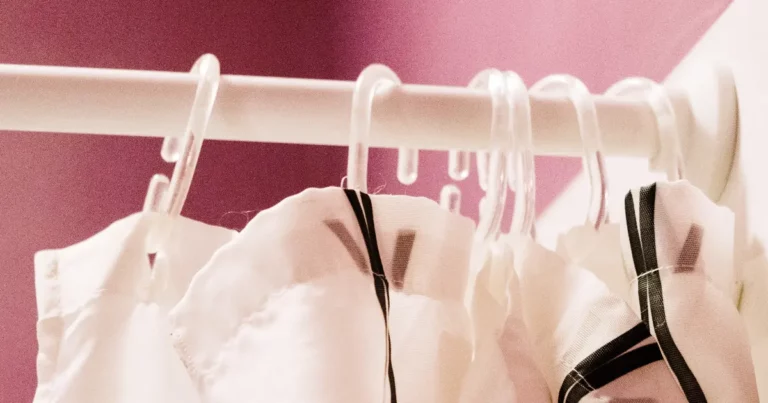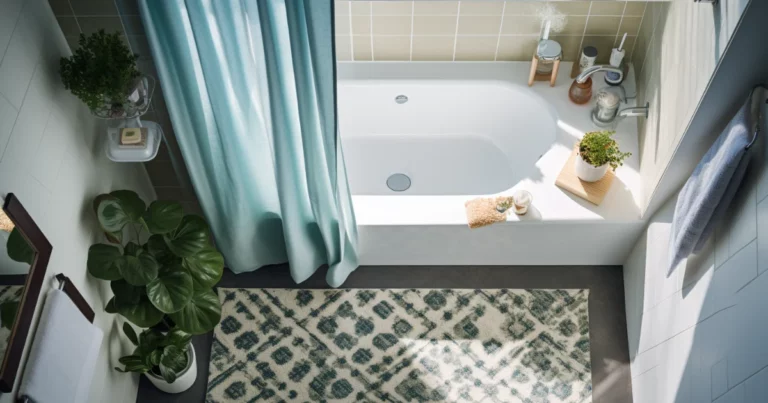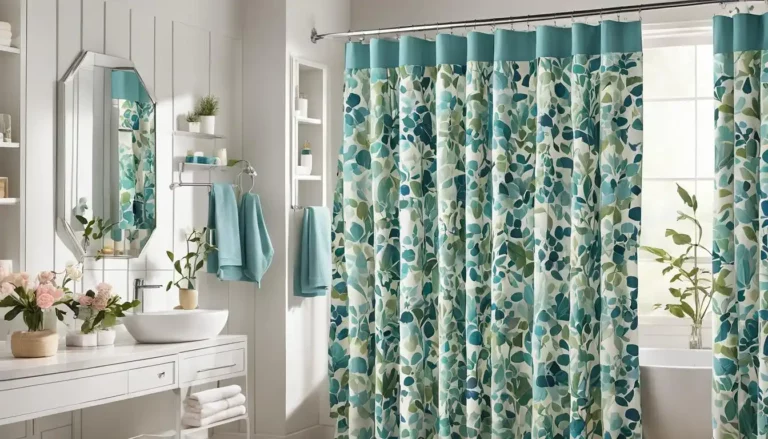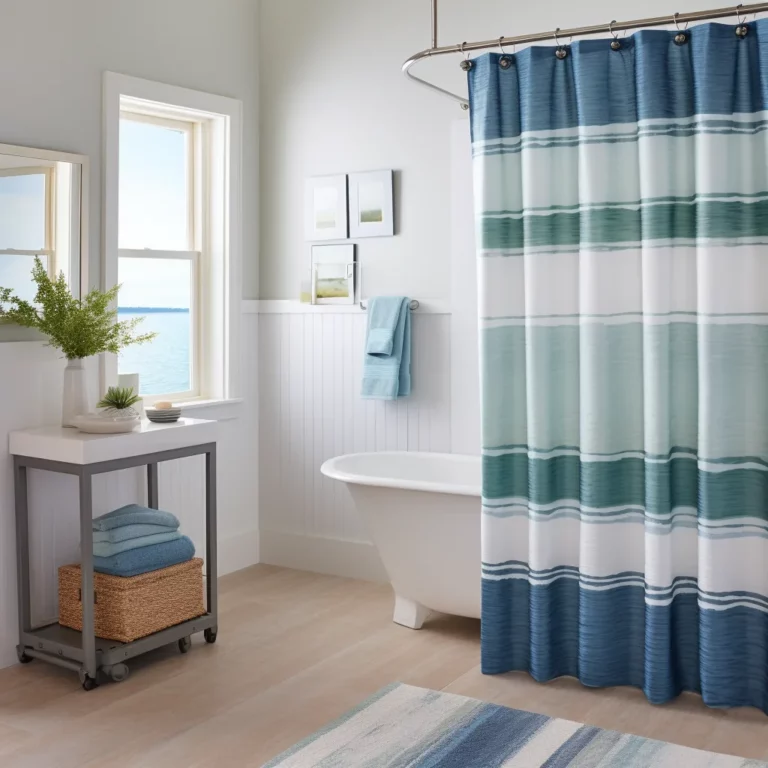Are Cotton Shower Curtains Good? A Comprehensive Guide:3 Factors to Consider
Are cotton shower curtains good? As you search for bathroom decor, you may wonder if cotton shower curtains are the sturdy sails you need for your daily splash. They’re a natural choice, soft to the touch, and offer a canvas for countless designs to match your taste.
It’s true they might need a bit more care than synthetic alternatives. But you’ll appreciate the homey vibe cotton curtains bring to your bathroom sanctuary.
Embrace the texture and warmth of a cotton shower curtain. Elevate your space while keeping those pesky water puddles at bay.
Table of Contents
Are Cotton Shower Curtains Good? Advantages of Cotton Shower Curtains

You’ll appreciate the aesthetic appeal of cotton shower curtains. They come in a variety of styles that enhance your bathroom’s look.
They’re not only stylish but also kinder to the environment. They offer a sustainable option compared to synthetic materials.
Plus, they provide a sense of comfort and safety. They are soft to the touch and less prone to hazardous off-gassing.
Aesthetic Appeal
Cotton shower curtains enhance your bathroom’s ambiance with their natural elegance and diverse range of designs. They’re not only functional. They’re the cornerstone of your bathroom decor.
Cotton shower curtains are made of natural fabrics. They can bring a luxurious feel and texture to the space. Whether you’re drawn to the rustic charm of gauze cotton or the quaint coziness of gingham patterns, these curtains offer a visual and tactile richness that can transform your bathroom.
Moreover, the variety available allows you to express your personal style effortlessly. Striped cotton adds a brightening effect that can make the room appear larger. A simple, high-quality cotton curtain can anchor your space with understated sophistication. It’s clear that a cotton shower curtain is a stylish choice for any bathroom.
Environmental Effects
By choosing cotton shower curtains, you’re also making a positive impact on the environment. These shower curtains are a symbol of eco-friendly home choices.
When you opt for curtains made from organic or recycled cotton, you’re supporting sustainable practices within the textile industry. Cotton is a renewable resource and is biodegradable. So your curtain will naturally decompose at the end of its lifespan.
Plus, by using your washing machine for regular cleaning, you avoid harsh chemicals. Your choice contributes to the growing demand for environmentally conscious products. This will lead to more green production methods and a healthier planet.
Comfort and Safety
Cotton shower curtains offer you enhanced comfort and added safety too.
They’re easy to clean. This means you can keep them free from mildew with regular use. Thus you can keep your bathroom both sanitary and stylish.
Unlike plastic options, cotton shower curtains provide a soft, natural feel. They can transform your space into a cozy retreat.
They’re designed to withstand the humidity and frequent handling in daily showers. So they can remain a comforting feature of your bathroom.
Moreover, their superior durability means you won’t have to worry about replacements often. They’re a safe and comfortable choice for your home.
Are Cotton Shower Curtains Good? Disadvantages of Cotton Shower Curtains
While you might love the look and feel of cotton shower curtains, they’re not perfect.
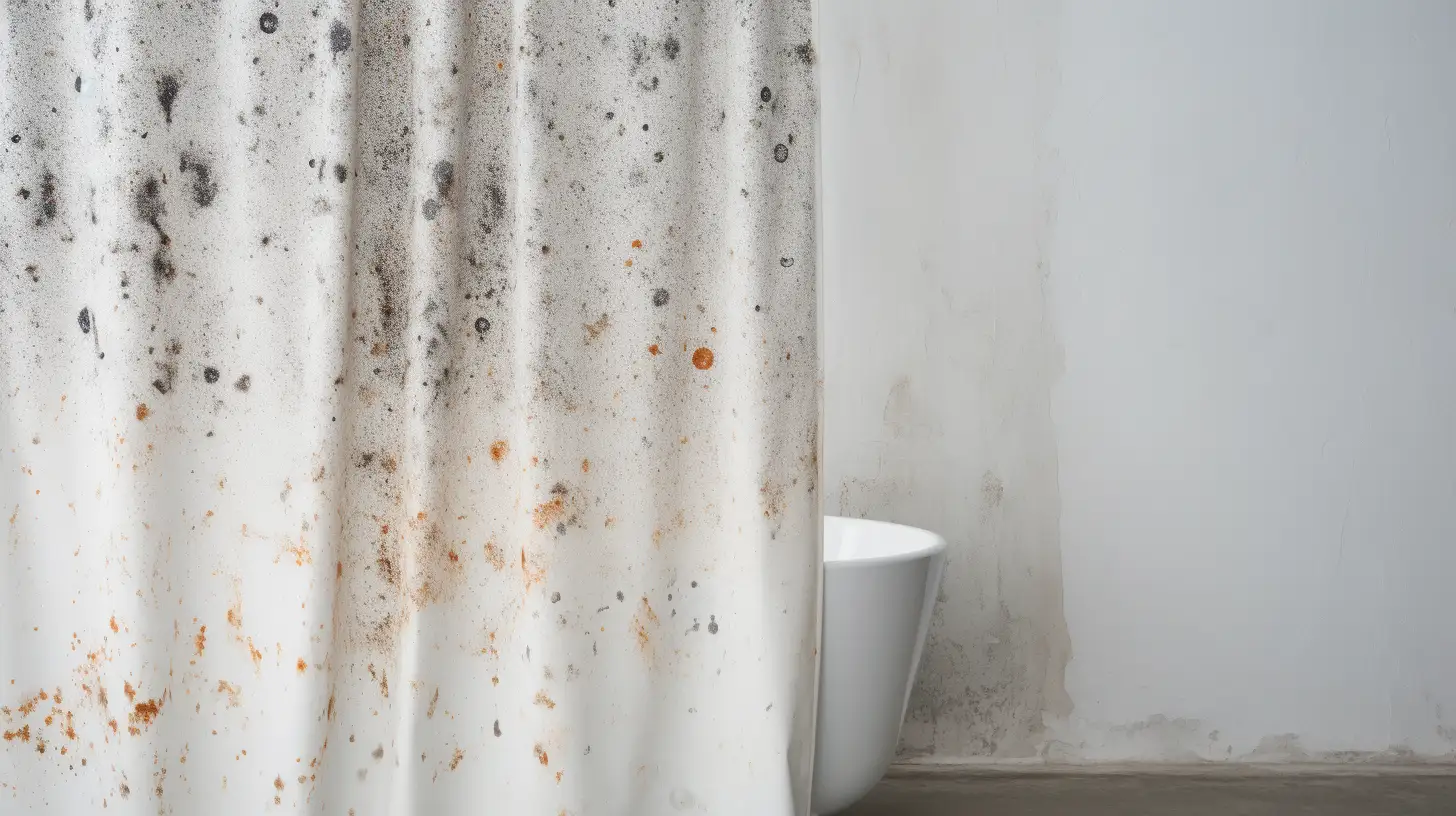
Easy Mildew Growth
Cotton shower curtains are prone to absorbing water. This can lead to mildew growth if you don’t regularly maintain them. This water absorption isn’t just a minor inconvenience. It can transform your fabric shower curtain into a damp habitat ideal for mildew to thrive.
As a result, cotton shower curtains need vigilant care to combat these issues.
Although cotton fabric provides a rich texture and privacy, its tendency to retain moisture demands a commitment to frequent laundering. Without this upkeep, the curtain material can become a breeding ground for mildew, compromising the fresh, clean atmosphere of your bathroom.
Maintenance Problems
Your cotton shower curtain’s need for regular maintenance can be a significant drawback. It needs consistent effort to prevent issues like mildew and fabric wear. While cotton curtains are easy to toss in the washing machine, they tend to wrinkle. Thus, they demand extra care, such as ironing and pre-washing, to avoid shrinkage.
The unique charm of gauze cotton curtains comes with the added hassle of requiring a liner. This not only conceals their intricate woven detail but also adds to your maintenance tasks. Furthermore, certain cotton fabrics that may look appealing in your bathroom space, like chenille or denim, aren’t as practical as other materials. They can present even more challenges when it comes to their upkeep.
Longevity Issues
Cotton shower curtains can wrinkle, shrink, and even fade with frequent exposure to humidity and water. Cotton varieties like terry and gauze may need extra shower curtain liners and care to maintain their look and function. You might find that these curtains need replacing more often than those made from more resilient materials, like polyester, which are usually recommended if you prioritize longevity in a wet bathroom environment.
Cotton Shower Curtains vs. Other Materials

You’ve seen the benefits of cotton shower curtains. But how do they stack up against other materials like plastic, hemp, polyester, or nylon? Each material brings its own set of advantages to the table. Let’s compare these options to see which one might suit your bathroom needs the best.
Plastic or Vinyl Shower Curtains
Plastic or vinyl options are often chosen for their affordability and water-resistant properties. A vinyl shower curtain can be an effective water barrier. It can keep moisture in the tub and off your bathroom floor. These curtains or liners are handy, especially if you’re on a tight budget since plastic shower curtains are generally less expensive than their fabric counterparts.
Yet, you might find that a vinyl curtain doesn’t quite match the aesthetic appeal of cotton. And while a plastic liner can prevent water from escaping, it may not offer the same level of sophistication and design variety.
Hemp Shower Curtains
As you explore shower curtain options, consider the sustainability champion—hemp shower curtains. They offer a robust alternative to traditional cotton. Choosing a hemp shower curtain for your bathroom isn’t just about style. It’s about making a conscious decision for the environment.
Hemp’s minimal environmental impact makes it stand out. Moreover, you won’t have to worry about mold and mildew. Hemp is naturally resistant to mold and mildew, ensuring your bathroom stays cleaner.
In the long run, hemp curtains outlast cotton thanks to their superior strength and resilience. Imagine the best shower curtain and liner combo that not only adds organic elegance to your decor but also promotes a healthier space.
That’s what hemp shower curtains bring to the table—a durable, eco-friendly, and stylish choice.
Polyester Shower Curtains
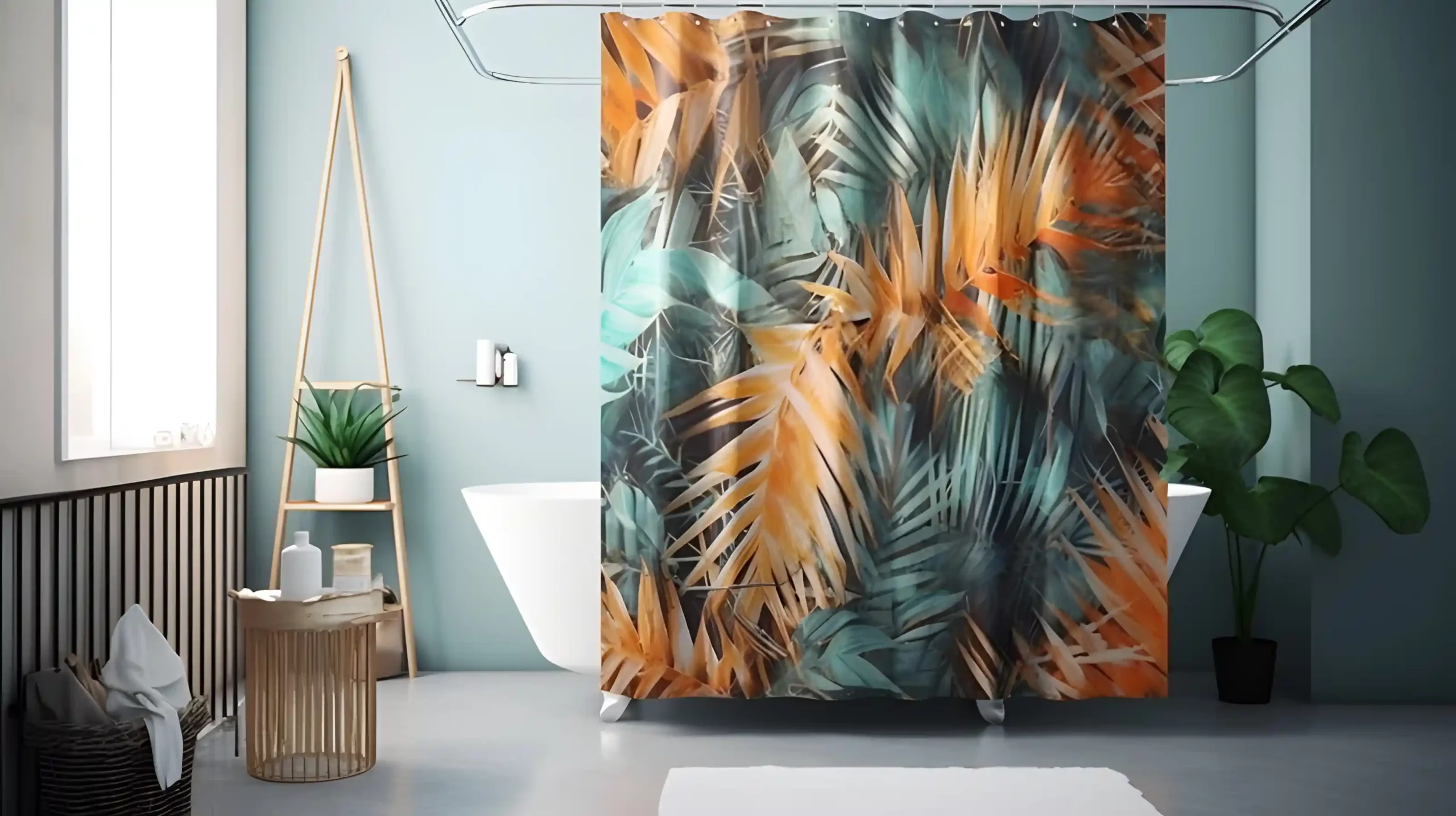
If you’re comparing cotton shower curtains with other materials, consider that polyester curtains usually offer superior durability and stain resistance.
Polyester shower curtains are crafted from a robust polyester fabric that stands up to frequent use and washing. Unlike some materials, these curtains often maintain their shape and color. This makes them a practical addition to your bathroom.
While a cotton curtain may need a liner to keep water contained, polyester curtains can provide excellent protection on their own.
Additionally, polyester curtains are easy to care for. Most are machine washable and shrug off stains with little effort.
Their versatility in design means you’ll find an option that complements your bathroom’s aesthetic perfectly.
Nylon Shower Curtains
Considering your options, you’ll find that nylon shower curtains offer a lightweight and water-resistant alternative to the heavier cotton varieties.
Unlike the classic touch of cotton gingham in country-themed bathrooms, nylon shower curtains come in a variety of shower curtain styles that are simple to manage.
These fabric curtains can be a practical choice for frequent use, especially if you’re after a no-fuss setup.
While not as diverse as cotton, plenty of shower curtains are available in nylon that can meet your needs without stretching your budget.
However, they may not boast the same durability or eco-friendly options as cotton. Their aesthetic mightn’t match the natural elegance that cotton curtains provide.
Factors to Consider When Choosing Cotton Shower Curtains

When picking out a cotton shower curtain, you’ll want to consider your bathroom’s ventilation and how often you’ll be using the shower. If your bathroom isn’t well-ventilated, a cotton curtain mightn’t dry as quickly, which can lead to mildew.
Also, think about pairing your cotton curtain with a liner to protect it from water damage and extend its lifespan.
Bathroom Ventilation
You’ll need to ensure proper ventilation in your bathroom. It’s a key factor in preventing mold and mildew on your cotton shower curtain, especially if the space is used frequently. Cotton shower curtains, though stylish and durable, absorb more moisture than synthetic materials. Without adequate bathroom ventilation, this can lead to a damp environment conducive to mold growth.
Frequency of Use
If you opt for a linen shower aesthetic with a cotton curtain, keeping the bathroom floor dry is another concern. Regular use tends to increase water exposure. The high frequency of use demands diligent maintenance. Make sure to wash your cotton shower curtain regularly and keep the bathroom well-ventilated. Doing so can prevent mold and maintain its elegance and longevity.
Use of a Liner
Don’t overlook the importance of adding a liner to prevent water damage and maintain privacy.
Even though cotton shower curtains bring style and durability, they often need a liner to fully protect your space. Without a liner, your curtain may not effectively prevent water from splashing out. It will potentially damage floors and walls.
Additionally, certain materials, such as gauze and terry cloth, provide distinct textures and absorbencies. But they can compromise privacy without the addition of a liner.
How to Care for Cotton Shower Curtains
To maintain your cotton shower curtains, you’ll need to wash them regularly. Whatever your choice, it’s best to toss it in the washing machine every couple of months. Before you do, check the care instructions to avoid any shrinkage or damage.
If your curtain requires it, pre-wash it as directed. After washing, if you notice any wrinkles, a quick ironing session can restore its crisp appearance. Remember, high-quality cotton shower curtains can last a long time with proper care, making them a worthy investment for your bathroom. Just stay vigilant with maintenance to keep your curtain looking and performing at its best.
Best Option We Recommend: Polyester Shower Curtains
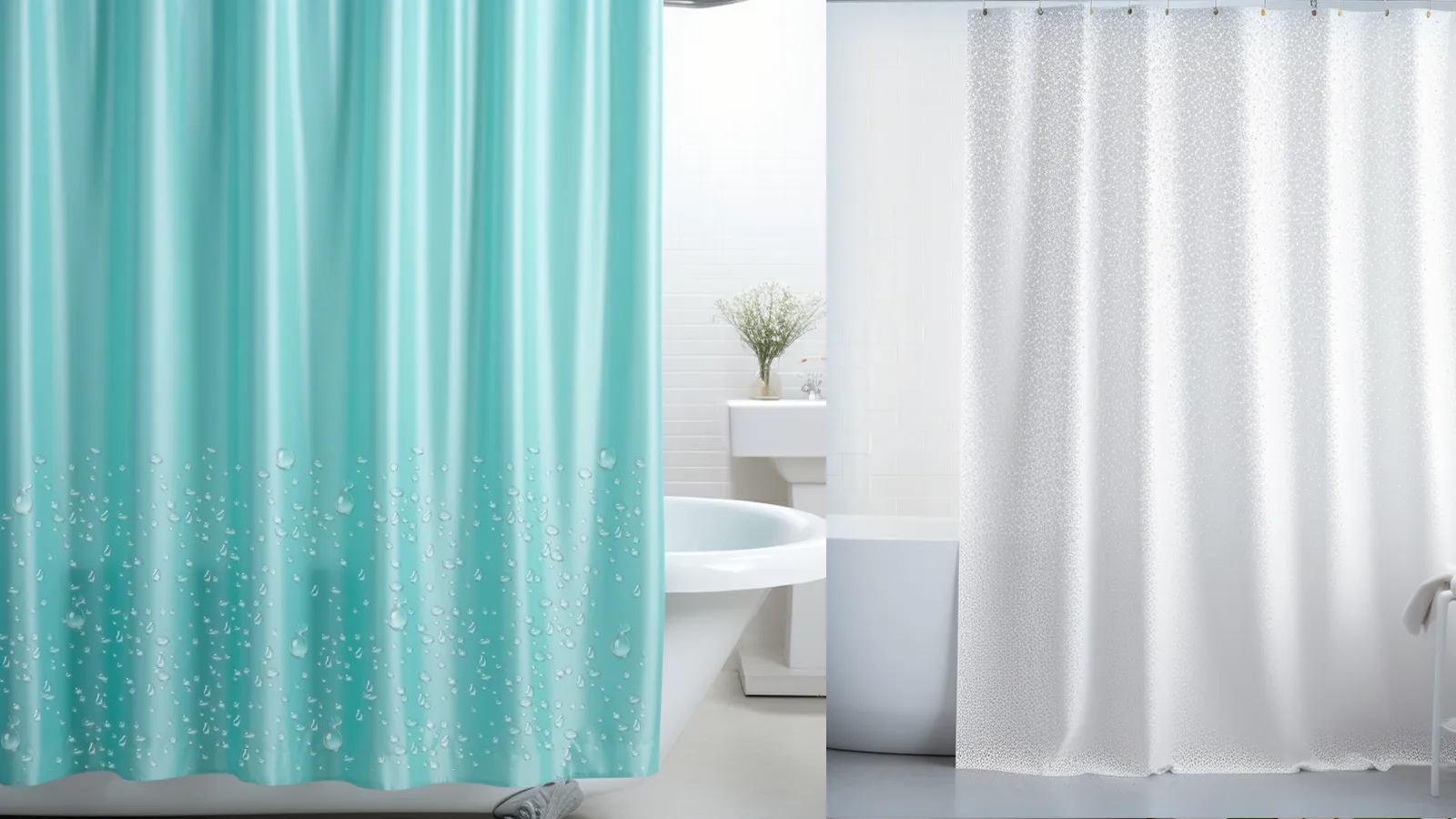
Despite the qualities of cotton shower curtains, we find that polyester options offer superior durability and ease of maintenance.
When selecting the best shower curtain for your bathroom, consider that polyester shower curtains are easy to care for. This is a significant advantage. The materials of the curtain resist staining and can handle the humidity of a bathroom without succumbing to mildew. You can toss your polyester curtain in the washing machine without a second thought, ensuring a hassle-free clean.
Moreover, their strength means fewer replacements over time, saving you both money and effort.
In essence, a polyester shower curtain stands out as the best blend of functionality, style, and longevity.
Conclusion
You’ve sifted through the fabric forest, weighing cotton’s charm against its challenges. If the thought of a crisp, natural curtain billowing in your personal oasis appeals, remember that it demands a dance with diligence.
Keep it fresh, and your cotton curtain can waltz through the steamy symphony of your showers with grace. But if you seek a fuss-free partner, a polyester curtain might be your perfect match, ready to sway through splashes with minimal effort.
Choose wisely. Your sanctuary awaits.
FAQs
Q: What are some popular styles of cotton shower curtains?
A: Common styles of cotton shower curtains include striped cotton, white cotton, and extra-long cotton curtains to accommodate various shower spaces.
Q: Are there any specific shower curtain hooks or rings recommended for cotton shower curtains?
A: It’s best to use rust-resistant hooks or rings with cotton shower curtains to prevent any damage or discoloration to the fabric.
Q: How can a cotton shower curtain complement a small bathroom?
A: A cotton shower curtain can add a light and airy feel to a small bathroom and create the illusion of more space due to its fabric texture and appearance.
Q: What is the standard size for an extra-long cotton shower curtain?
A: Extra-long cotton shower curtains typically measure around 72 inches by 84 inches or longer to accommodate taller or larger shower areas.



